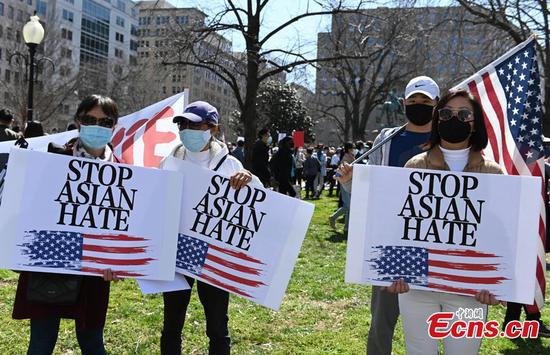United Nations Secretary-General Antonio Guterres on Thursday called on the international community to eliminate the ideas of white supremacy that underpinned the notorious transatlantic slave trade.
Although the transatlantic slave trade ended more than two centuries ago, "the ideas of white supremacy that underpinned it remain alive," the UN chief said at a commemorative meeting of the General Assembly to mark the International Day of Remembrance of the Victims of Slavery and the Transatlantic Slave Trade.
"We must end the legacy of this racist lie," the top UN official said at the event that honored the memory of the millions of people of African descent who suffered under the brutal system of slavery and the transatlantic slave trade.
While recalling the resilience of those who endured the "brutal yoke" of slavery, he recognized the trade as creating and sustaining "a global system of exploitation that existed for more than 400 years."
The UN chief underscored the need to address the "pernicious and persistent consequences" of slavery and called for renewed commitments to "a world where all can live in peace with dignity and opportunity."
Guterres also acknowledged the "immense contributions" that the enslaved have brought to culture, education and economies.
"We honor the memory of the victims of the transatlantic slave trade by educating about its history and acknowledging its impact on our world today," he said, urging everyone to "tackle racism, injustice and inequality" and build inclusive communities and economies.
The International Day of Remembrance of the Victims of Slavery and the Transatlantic Slave Trade is a UN international observance designated in 2007 to be marked on March 25 every year. The day honors and remembers those who suffered and died as a consequence of the transatlantic slave trade, which has been called "the worst violation of human rights in history," in which over 400 years more than 15 million men, women and children were the victims.


















































